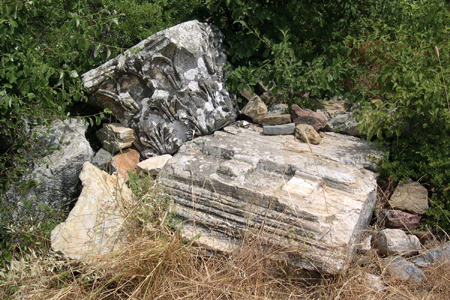Historically, Antiochia with its harbor possibly served as one of the havens for the Cilician pirates who operated from these shores and preyed upon shipping and coastal communities of the eastern Mediterranean during the first half of the first century B.C. Pompey the Great ended the pirate scourge in 67 B.C. with a naval victory at nearby Korakesion (Alanya). The emperor Gaius ceded control of Rough Cilicia to a client-king of Rome, Antiochos IV of Commagene, for a brief period in A.D. 38; he was restored to power in 41 under Claudius. He ruled continuously until A.D. 72, during which period he founded the city and named it after himself. After his deposition by Vespasian in 72, the city, along with the rest of Rough Cilicia, fell under direct Roman rule as part of the enlarged Province of Cilicia.
